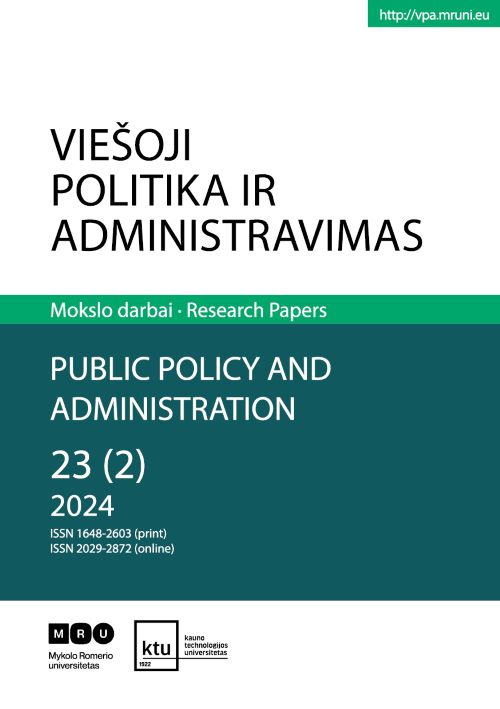THE EFFECTS OF GOVERNANCE AND MULTIDIMENSIONAL POVERTY AT THE GRASSROOTS LEVEL IN INDONESIA
THE EFFECTS OF GOVERNANCE AND MULTIDIMENSIONAL POVERTY AT THE GRASSROOTS LEVEL IN INDONESIA
Author(s): Andi M. Rusli, Suhardiman Syamsu, Muhammad Chaeroel AnsarSubject(s): Social differentiation, Socio-Economic Research
Published by: Mykolas Romeris University
Keywords: good governance; poverty; developing countries; rural areas; Indonesia;
Summary/Abstract: The existing literature has predominantly focused on exploring how governance affects objective poverty measures; however, this study goes beyond by considering subjective poverty at the grassroots level, specifically in rural areas. Empirical analysis employing probit methodologies uncovers a positive and statistically significant correlation between governance quality and poverty. Notably, participation, accountability, public administration procedures, and e-government initiatives positively influence poverty levels. These findings highlight the importance of governance in improving the income and well-being of rural households. Furthermore, the study reveals that good governance practices have a positive impact on reducing the likelihood of poverty in rural areas, particularly among impoverished segments of rural communities. These results support the notion of a causal relationship between good governance and objective poverty, and shed light on the effects on subjective poverty. The study suggests several potential mechanisms through which this influence occurs, including the enhancement of e-government, participation, public administration procedures, and accountability. Districts with stronger village governance exhibit higher levels of participation and more effective decision-making processes that contribute to overall prosperity
Journal: Viešoji politika ir administravimas
- Issue Year: 23/2024
- Issue No: 2
- Page Range: 259-273
- Page Count: 15
- Language: English

